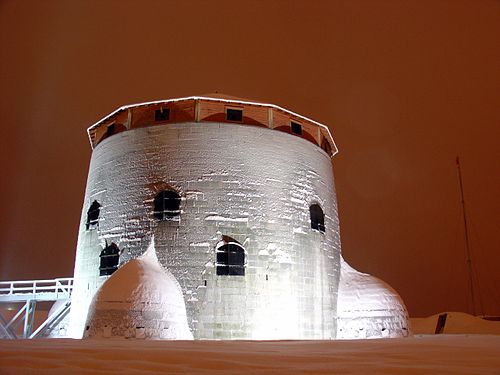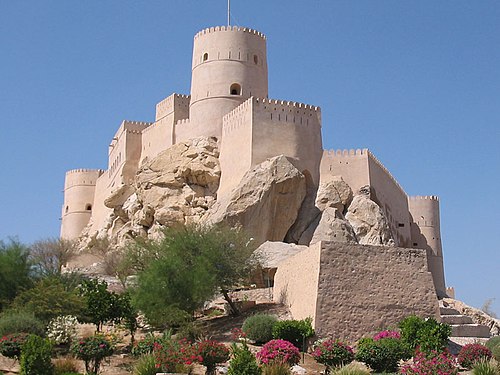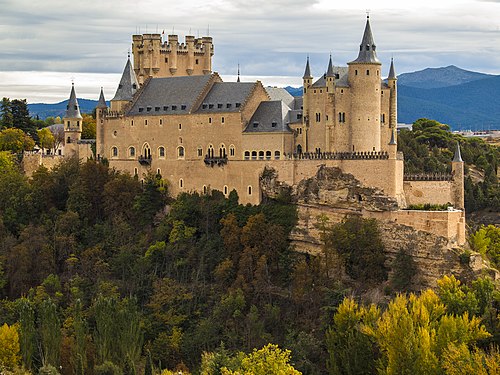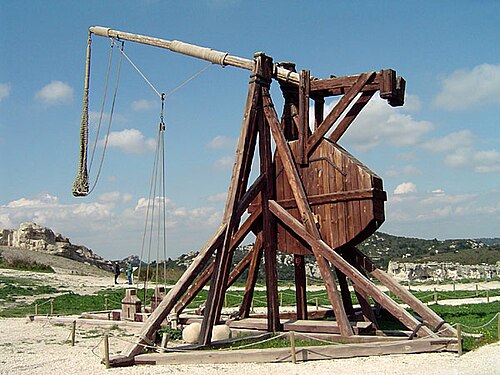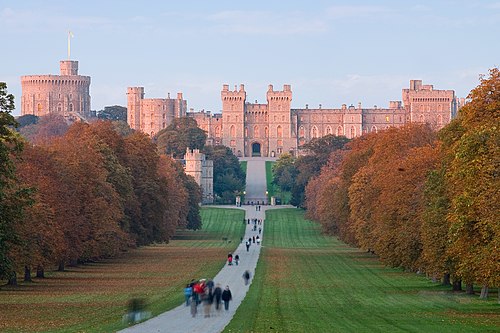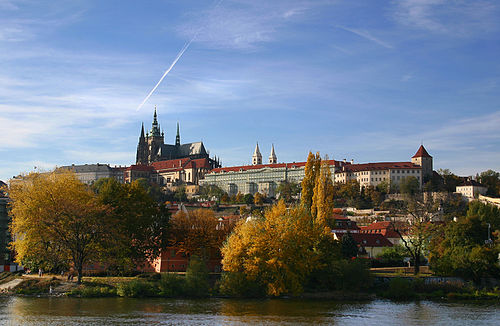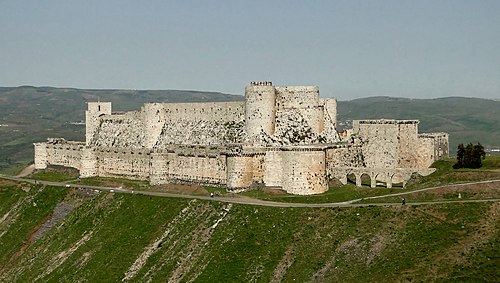Fortnoun
A fortified defensive structure stationed with troops.
Fortnoun
Any permanent army post.
Fortnoun
(historical) An outlying trading-station, as in British North America.
Fortverb
To create a fort, fortifications, a strong point, or a redoubt.
Fortnoun
A strong or fortified place; usually, a small fortified place, occupied only by troops, surrounded with a ditch, rampart, and parapet, or with palisades, stockades, or other means of defense; a fortification.
Fortnoun
a fortified military post where troops are stationed
Fortnoun
a fortified defensive structure
Fortverb
gather in, or as if in, a fort, as for protection or defense
Fortverb
enclose by or as if by a fortification
Fortverb
station (troops) in a fort
Fortnoun
a fortified building or strategic position
Fortnoun
a trading station.
Castlenoun
A large building that is fortified and contains many defences; in previous ages often inhabited by a nobleman or king.
Castlenoun
(chess) An instance of castling.
Castlenoun
A rook; a chess piece shaped like a castle tower.
Castlenoun
(shogi) A defense structure in Japanese chess in which the king (玉) is positioned in a certain way so that it is protected by pawns (歩) and silver general(s) (銀) and/or gold general(s) (金) often with an additional knight (桂) and lance (香車).
Castlenoun
(obsolete) A close helmet.
Castlenoun
(dated) Any strong, imposing, and stately mansion.
Castlenoun
(dated) A small tower, as on a ship, or an elephant's back.
Castleverb
(transitive) To house or keep in a castle.
Castleverb
To protect or separate in a similar way.
Castleverb
(obsolete) To make into a castle: to build in the form of a castle or add (real or imitation) battlements to an existing building.
Castleverb
To move the king 2 squares right or left and, in the same turn, the nearest rook to the far side of the king. The move now has special rules: the king cannot be in, go through, or end in check; the squares between the king and rook must be vacant; and neither piece may have been moved before castling.
Castleverb
To create a similar defensive position in Japanese chess through several moves.
Castleverb
(cricket) To bowl a batsman with a full-length ball or yorker such that the stumps are knocked over.
Castlenoun
A fortified residence, especially that of a prince or nobleman; a fortress.
Castlenoun
Any strong, imposing, and stately mansion.
Castlenoun
A small tower, as on a ship, or an elephant's back.
Castlenoun
A piece, made to represent a castle, used in the game of chess; a rook.
Castleverb
To move the castle to the square next to king, and then the king around the castle to the square next beyond it, for the purpose of covering the king.
Castlenoun
a large and stately mansion
Castlenoun
a large building formerly occupied by a ruler and fortified against attack
Castlenoun
(chess) the piece that can move any number of unoccupied squares in a direction parallel to the sides of the chessboard
Castlenoun
interchanging the positions of the king and a rook
Castleverb
move the king two squares toward a rook and in the same move the rook to the square next past the king
Castle
A castle is a type of fortified structure built during the Middle Ages predominantly by the nobility or royalty and by military orders. Scholars debate the scope of the word castle, but usually consider it to be the private fortified residence of a lord or noble.


















